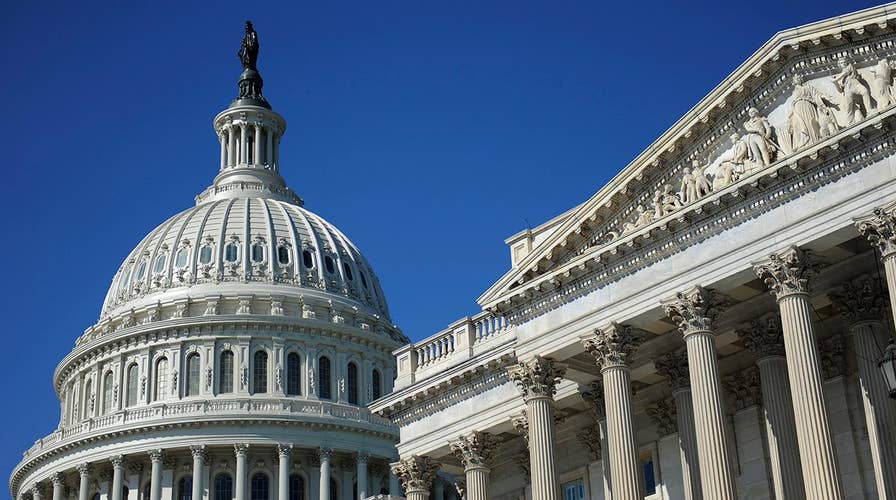House passes Republican tax reform bill
13 Republicans and 192 Democrats vote against the bill; Mike Emanuel reports from Capitol Hill.
Dan Mitchell has been waiting a long time for tax reform. In 1986, he was a young free-market economist working for Senator Bob Packwood, the Finance Committee chairman who helped carry Ronald Reagan’s bold tax reform across the finish line into law. The lower rates and simplified tax code embodied in that law set the stage for the economic growth of the 1990s.
Since then, the tax code has once again become encrusted with special interest barnacles and higher tax rates.
Today, after the House’s historic vote on the first significant tax reform, Mitchell told me: "While I favor a flat tax, the House bill significantly cuts U.S. corporate tax rates -- currently the highest I the world -- and reduces distortions in the tax code. Tax reform is closer to reality now than it's been since the 1980s."
The House bill will now go over to the Senate, which has to pass its own version and then reconcile it with the House bill before anything reaches President Trump’s desk for his signature. That’s a lot of moving parts and much can go wrong, but it looks as if we are on the cusp of real tax reform.
If the opposition to tax reform were a movie it would be dubbed “Revenge of the Swamp Creatures.”
The three major elements of both the House and Senate bill are:
? A reduction in the number of tax rates from seven to four, with most Americans put into lower tax brackets than they are now. The standard deduction would be doubled, meaning some 90 percent of tax filers would be able to use the simplified standard form.
? A sharp reduction in the amount of double taxation of business so as to enable more saving and investment.
? An end to many preferences in the tax code -- such as the deduction for state and local taxes -- that currently creates irrational decision making thereby encouraging states to spend more -- and distort policy.
The reason why those goals have been so difficult to achieve in the last 30 years is that special interests are very good at guarding their own part of the tax code turf.
Realtors, home builders, mortgage lenders, charities, state governments all threaten members of Congress with punishment if they vote to disrupt their privileges.
Campaign contributions will flow to opponents of reform. If the opposition to tax reform were a movie it would be dubbed “Revenge of the Swamp Creatures.”
Justin Fox, a columnist for Bloomberg, notes that while many of the tax preferences embedded in our code are there to help a special interest, they are a real net drag on the overall economy. They also don’t really make as much difference to the special interests as they think. Fox writes: “If these tax breaks had never become law, no one would really miss them. Houses might cost a bit less. College might be slightly cheaper. Income tax rates might be a little lower. The economy might run a little bit more smoothly.”
But study after study shows the distortions of all these provisions drag down our economy overall. Ultimately, unless there is a sea change in the willingness to cut government spending, the only way we’re going to pay for the Social Security and other entitlement spending future generations are expecting is to stimulate economic growth. A simpler, fairer tax code is a big part of getting that growth.
If we don't pass tax reform this year, the moment may be lost for years or even decades. Remember, it's been 30 years since the last big reform. Can our nation and our children and grandchildren afford that delay?

